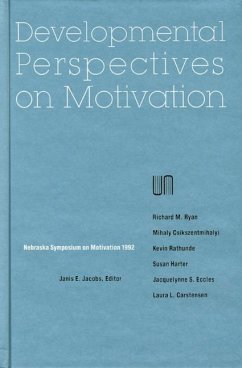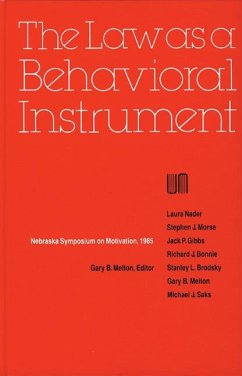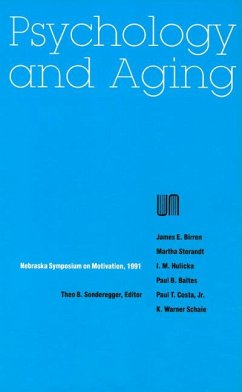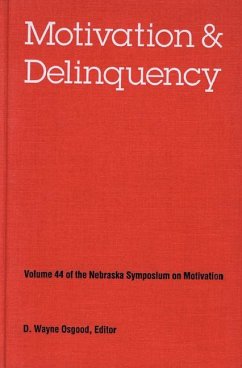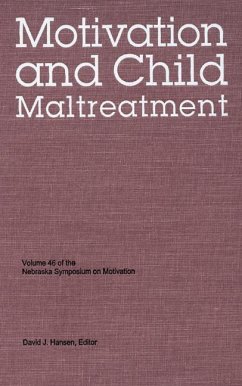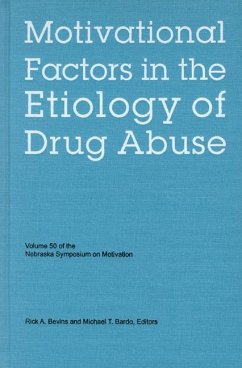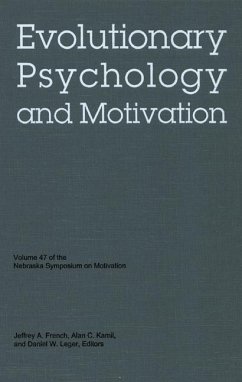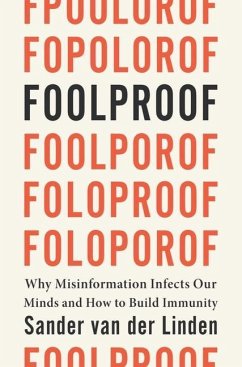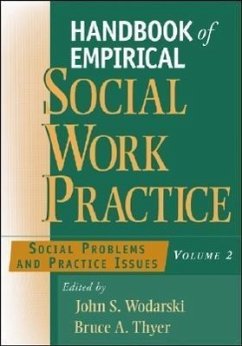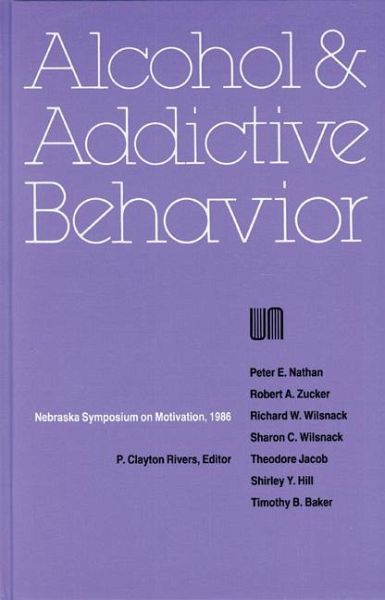
Nebraska Symposium on Motivation, 1986, Volume 34
Alcohol and Addictive Behavior
Herausgeber: Rivers, P Clayton
Versandkostenfrei!
Versandfertig in über 4 Wochen
43,99 €
inkl. MwSt.
Weitere Ausgaben:

PAYBACK Punkte
22 °P sammeln!
Alcohol and drug abuse are among the gravest and most widespread problems clinical psychologists must treat. Though the problems seem perennial, diagnosis and treatment have been steadily refined, allowing professional psychologists to assess more variables and to offer more effective help. This volume surveys the latest advances in research and therapy and reconsiders standard treatment practices. The contributors to Alcohol and Addictive Behavior, all of them established professionals, focus on such key issues as the effect of addiction on the family, the influence of genetics, and the sourc...
Alcohol and drug abuse are among the gravest and most widespread problems clinical psychologists must treat. Though the problems seem perennial, diagnosis and treatment have been steadily refined, allowing professional psychologists to assess more variables and to offer more effective help. This volume surveys the latest advances in research and therapy and reconsiders standard treatment practices. The contributors to Alcohol and Addictive Behavior, all of them established professionals, focus on such key issues as the effect of addiction on the family, the influence of genetics, and the source of alcohol and drug craving. Much of what they report is based on new and ongoing research that should have considerable influence in the future treatment of alcohol and substance abusers. The contents include: "What Do Behavioral Scientists Know-and What Can They Do-about Alcoholism" by Peter E. Nathan, Rutgers University; "The Four Alcoholisms: A Developmental Account of the Etiological Process" by Robert A. Zucker, Michigan State University; "Antecedents and Consequences of Drinking and Drinking Patterns in Women: Patterns from a U.S. National Survey" by Richard W. Wilsnack, University of North Dakota School of Medicine; "Alcoholism: A Family Interaction Perspective" by Theodore Jacob, University of Pittsburgh, Biological Markers for Alcoholism: A Vulnerability Model Conceptualization" by Shirley Y. Hill, University of Pittsburgh School of Medicine; and "The Motivation to Use Drugs: A Psychobiological Analysis of Urges" by Timothy B. Baker, University of Wisconsin-Madison.




